To understand the context of off-grid living, we need to first define what it means. Essentially, off-grid living is a deliberate lifestyle choice that prioritizes energy self-sufficiency. It requires disconnecting from traditional electrical grids and utilities, and instead relying on alternative sources of power, water, and other essentials. This path is usually taken out of a need for independence, care for the planet, and the aim of creating a self-sustaining lifestyle.
Renewable Energy: The Lifeblood of Off-Grid Living
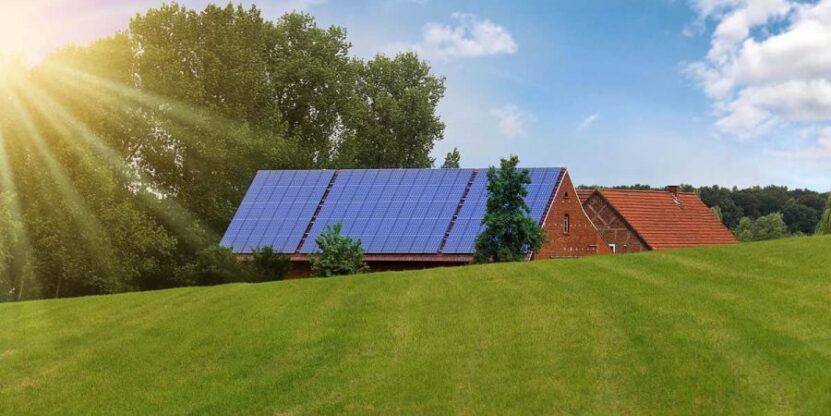
As we transition away from reliance on traditional utilities, renewable energy sources become critical. These let us utilize natural energy from the sun, wind, water, and even the ground. These energy sources are not only plentiful but also restore themselves, making them an efficient and economical solution for living without access to the public power grid.
Solar Power: The Sun at Your Service
Solar energy is a great choice for those homes that don’t have access to the electrical grid. Solar panels capture the Sun’s energy and turn it into usable electricity. The benefits of solar energy are vast. Not only is it abundantly available and cost-effective, but it also doesn’t produce harmful emissions or noise.
As sunlight is intermittent, storing the generated power becomes crucial for off-grid living. According to the good folk at solar energy company Vivint Solar, this is where a solar battery storage system comes in handy. The energy that is stored up can be used when the sun isn’t shining, making sure a consistent power supply for your off-grid home.
Wind Power: Catching the Breeze
If you’re in an area where the wind is consistent, putting wind turbines into your energy mix can be advantageous. Wind turbines basically take the wind’s kinetic and turn it into mechanical energy, and eventually, into electricity. How much energy a wind power system can generate for a home not connected to the power grid is based on the turbine’s dimensions and the wind conditions in the region. Even so, this kind of system could generate a lot of electricity.
Hydropower: Flowing Towards Sustainability
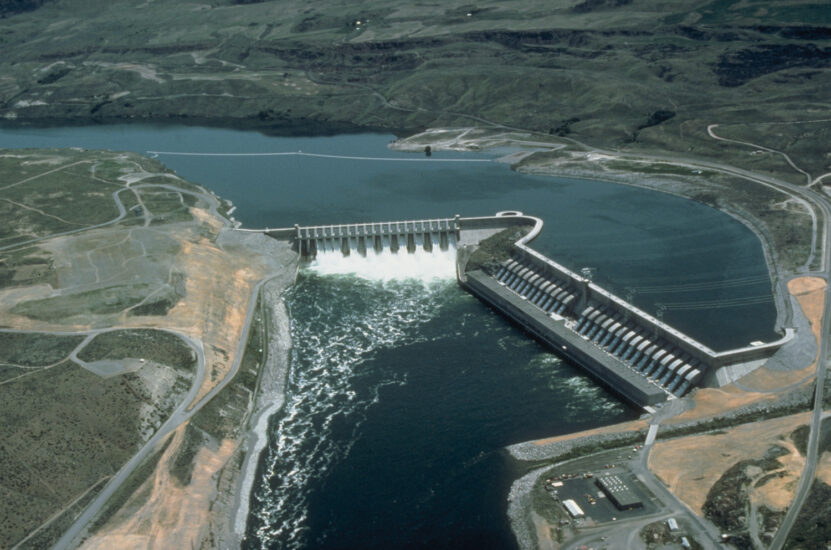
If you happen to live somewhere close to a steady stream of water (like a river or stream), you could think about using hydropower as a power generator. Harnessing the kinetic energy of the flowing water through a turbine or wheel means electricity can be produced and used for immediate consumption or stored for later use.
Geothermal Energy: Drawing Power from the Earth
The simple explanation is that geothermal energy uses heat created by the Earth to generate electricity. This can then provide home heating and cooling solutions. If the surroundings are suitable, then geothermal is a dependable, reliable source of energy not affected by weather. It could be a fantastic addition to your off-grid arsenal.
Water and Waste Management: The Unsung Heroes of Off-Grid Living
Besides energy, managing water supply and waste is critical in off-grid living. Rainwater collection, well drilling, and water purification systems can ensure a stable water supply. For waste, composting toilets and recycling systems can handle organic waste, whereas greywater systems can recycle water from showers, sinks, and appliances for reuse.
The Role of Technology in Off-Grid Living
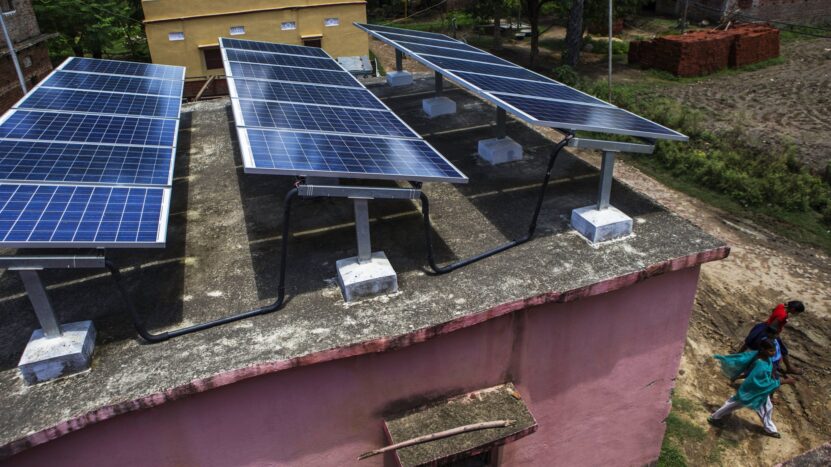
As we’ve seen, going off-grid involves leveraging several technologies to harness renewable energy and manage water and waste. The impact of technology doesn’t stop there though.
Energy Management Systems
With various renewable sources feeding into your off-grid home, you need an efficient way to manage these inputs. Energy management systems (EMS) do precisely that. They regulate the flow of power from your sources to your home and battery storage, ensuring optimal performance and efficiency.
An EMS can switch between sources depending on their availability—for example, harnessing solar power during the day, wind energy during breezy evenings, and drawing from the solar battery storage system when needed.
Smart Home Technology
Smart home technologies can significantly contribute to efficiency in an off-grid home. Utilizing things such as automated lighting, smart thermostats, and energy-efficient appliances can help to reduce power consumption. This helps you to take full advantage of your renewable sources.
The Human Factor in Off-Grid Living
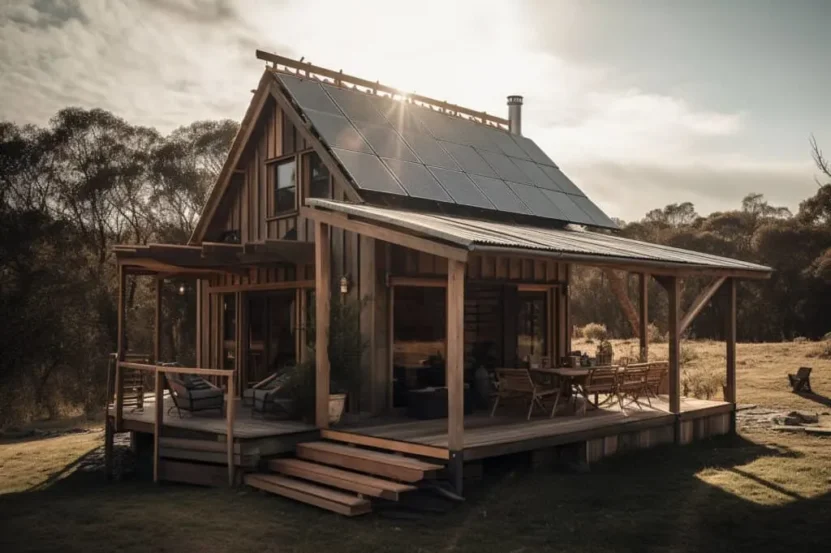
While technology and renewable energy sources play a significant role, the success of off-grid living also hinges on human adaptability. A transition to this lifestyle means accepting a different pace of life, adopting new skills, and fostering a close relationship with the natural environment.
Skills and Knowledge
Becoming energy self-sufficient requires a fundamental understanding of your energy needs and the capability to maintain and troubleshoot your systems. Whether it’s installing solar panels, maintaining a wind turbine, or setting up a rainwater collection system, there is a lot to learn when starting on this particular on this journey. These are both online and off-, all offering the necessary knowledge and guidance you’ll need.
Community
Going off-grid doesn’t mean going it alone. There’s a thriving community of off-grid enthusiasts ready to share experiences, offer advice, and provide support. Whether online or in local community gatherings, connecting with others on the same journey can enrich your off-grid experience.
The Bigger Picture
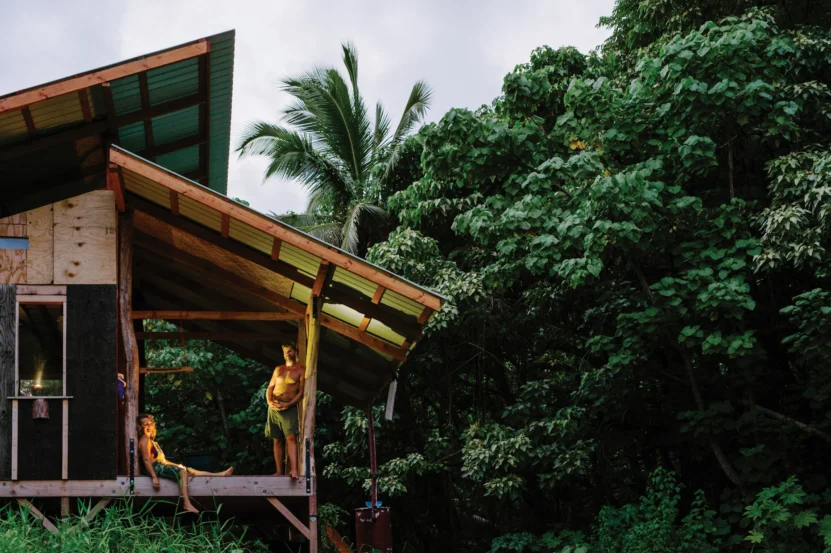
Off-grid living is not merely a lifestyle choice. It represents a broader movement towards sustainability, resilience, and environmental stewardship. Embracing renewable energy sources and sustainable practices means off-grid homes can serve as models for a future where energy consumption is in harmony with nature.
Environmental Impact
Every solar panel installed, every wind turbine erected, and every rain barrel filled contributes to a global reduction in greenhouse gas emissions. Off-grid living also promotes conservation and a less wasteful approach to resources, underscoring the idea that we can live comfortably without compromising the planet’s health.
Resilience and Independence
An off-grid lifestyle fosters resilience by reducing reliance on external utilities. In a world where climate change presents increasing challenges, this resilience could prove invaluable. Additionally, the skills and self-sufficiency gained through off-grid living can instill a sense of empowerment and independence.
Conclusion
Off-grid living offers a unique path for those seeking to embrace renewable energy, enhance their sustainability, and develop a deeper relationship with their environment.
